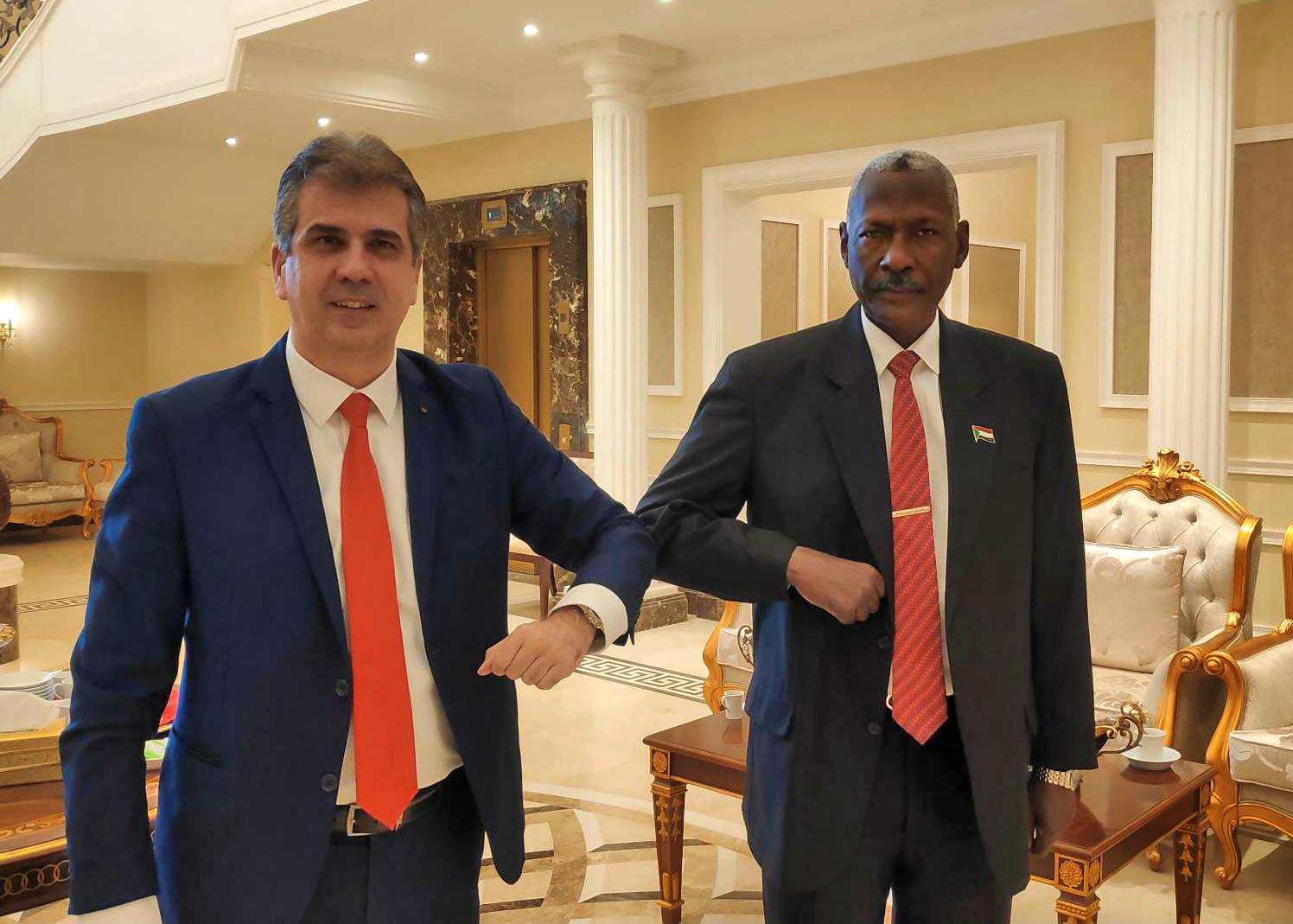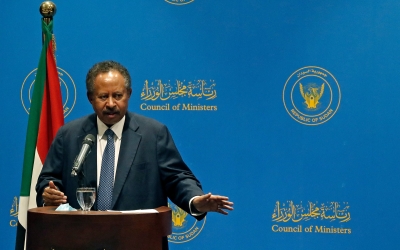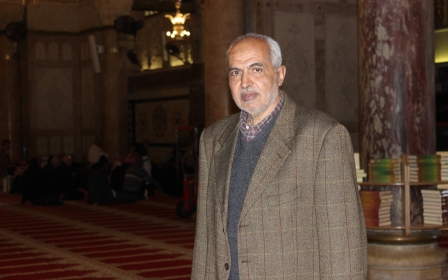In a new first, Israel’s intelligence minister visits Sudan to advance relations

Israel’s Intelligence Minister Eli Cohen has led a delegation to Khartoum, where both sides signed a memorandum of understanding on security, political and economic issues, the Israeli ministry said on Tuesday.
Cohen, the first Israeli minister to head a delegation to Sudan, met with the head of Sovereign Council General Abdel Fattah al-Burhan and Defence Minister Yassin Ibrahim on Monday and discussed a number of diplomatic and security issues, in addition to possible future economic cooperation.
New MEE newsletter: Jerusalem Dispatch
Sign up to get the latest insights and analysis on Israel-Palestine, alongside Turkey Unpacked and other MEE newsletters
"A first-ever memorandum on these topics was signed between the Sudanese defence minister and Cohen," the Israeli intelligence ministry said.
The sides also discussed "deepening intelligence cooperation".
"The Sudanese authorities briefed the Israeli delegation on their progress on cancelling the law boycotting Israel, and amending the law imprisoning Sudanese migrants, including [in] Israel, who [will] return to Sudan," the ministry added.
Sudan is among four Arab countries, including the United Arab Emirates, Bahrain, and Morocco, to have signed the Abraham Accords, normalising ties with Israel.
On 6 January, the day Khartoum inked the deal, US Treasury Secretary Steven Mnuchin made an unprecedented visit to the Sudanese capital Khartoum and signed a deal with the Sudanese government to access $1bn in financing from the World Bank.
In a diplomatic trade-off, Washington took Sudan off its State Sponsor of Terrorism (SST) list after 27 years, less than a month before Khartoum signed the agreement on 6 January.
Unpopular move
Sudanese state media have yet to report on the visit, possibly reflecting the lack of popular support for rapprochement with Israel.
Protests against the normalisation deal have continued in Sudan and on 17 January, dozens of protesters gathered outside the cabinet office in Khartoum and burned the Israeli flag as a sign of disapproval.
Many Arab governments have refused to normalise relations until Israel reaches a comprehensive peace agreement with the Palestinians..
Cohen said his visit to Khartoum "laid the foundations for many important collaborations that will help Israel and Sudan, boost regional stability, deepen our ties with Africa and lead to more agreements with states in the region".
Last week, White House national security adviser Jake Sullivan told his Israeli counterpart that the Joe Biden administration will work closely with Israel on regional security issues and to build on the country's regional normalisation agreements.
Middle East Eye delivers independent and unrivalled coverage and analysis of the Middle East, North Africa and beyond. To learn more about republishing this content and the associated fees, please fill out this form. More about MEE can be found here.





